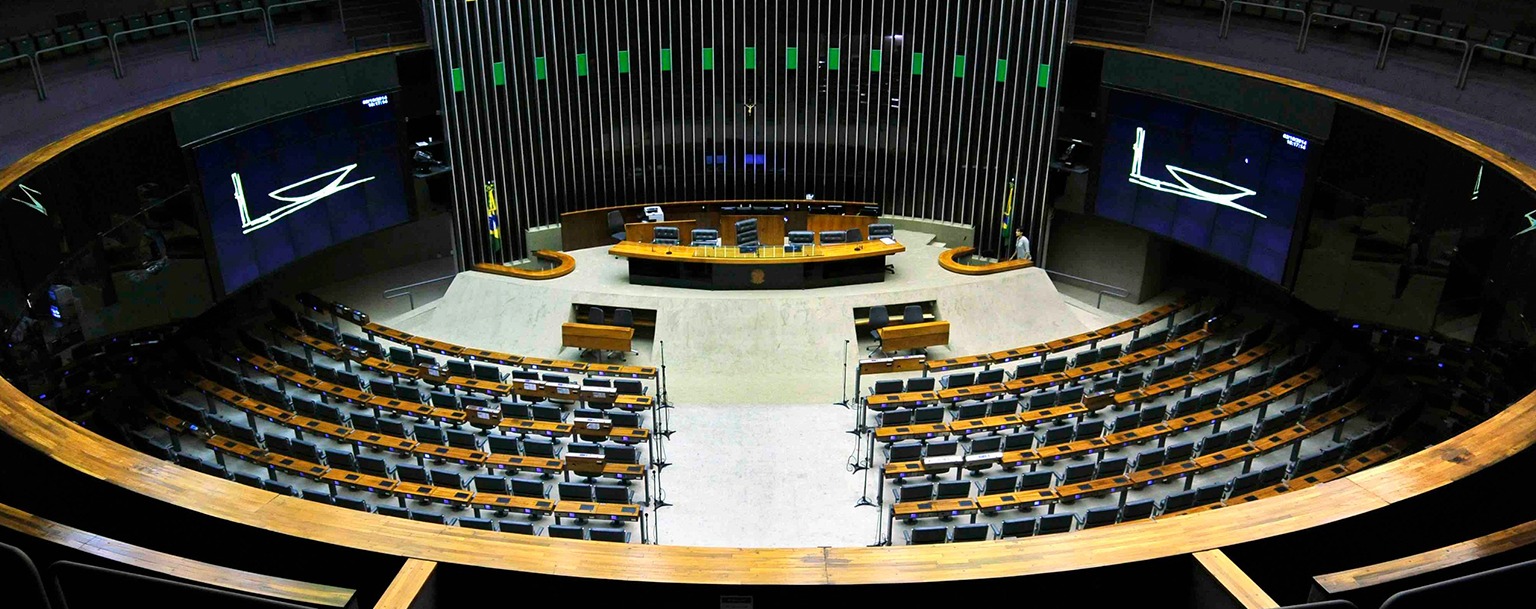Bills in Brazil propose regulation of digital platforms
29 de January de 2025

By Ana Cláudia Leocádio – From Cenarium
BRASÍLIA (DF) – Two bills submitted to the Brazilian Chamber of Deputies at the end of 2024 propose reorganizing internet governance, ensuring the right to free expression, moderating content, and regulating the operation of platforms, services, and digital markets on the global computer network.
The proposals are being processed at a time when the federal government is considering a policy for moderating digital platforms, particularly after Meta—the owner of Facebook, Instagram, and WhatsApp—changed its fact-checking policy and its entire content moderation framework for posts on its social networks.
Submitted on December 4, 2024, Bill 4,691/2024 is co-sponsored by Deputy Silas Câmara (Republicanos-AM) and Deputy Dani Cunha (União-RJ). She is the daughter of former Chamber of Deputies President Eduardo Cunha, who was impeached in 2016 for breach of parliamentary decorum after being accused of lying to the Petrobras Parliamentary Inquiry Commission (CPI) in 2015.

The proposal seeks to create the “Law on the Protection of Constitutional Freedoms and Fundamental Rights in Digital Platforms, Services, and Markets on the Internet”, establishing guidelines for the effective exercise of these rights. Its provisions will apply only to digital platforms with a user base of at least 5% of the country’s population.
Among its core principles, the bill upholds freedom of expression, prohibits anonymity, protects press freedom and bans censorship in the online environment. It also ensures the free exercise of religious expression, whether in person or remotely, guaranteeing the right to present and fully defend religious dogmas and sacred texts.
The project defines nine key digital platform categories relevant to the law’s application, including cloud computing services.
A dedicated chapter addresses platform liability, prohibiting anonymity and protecting user identities, which can only be disclosed under a judicial request.
According to the proposal, platforms will be held accountable in four cases:
- Failure to verify a user’s real identity when registering an account.
- Distributing content through online advertising in ways that violate regulations.
- Neglecting to act when user accounts are hacked despite being notified.
- Failing to act against fraudulent accounts created in someone else’s name, even after being alerted.
Responsible and Transparent Use
The bill is divided into seven chapters, covering preliminary provisions, regulation and self-regulation, and penalties.
In their justification, the authors argue that the bill “emerges in a context where digital interactions demand regulations that enable everyone to safely, responsibly, and transparently use digital platforms.”
By incorporating terms such as “protection of fundamental rights,” the text signals a concern for human dignity in an often unregulated digital space.
The authors hope that the bill will help reignite the legislative debate on platform regulation, which has been stalled in the Chamber since last year. The delay followed a decision by Chamber President Arthur Lira (PP-AL) to withdraw a similar proposal from discussion, despite promising to form a working group to revisit the issue—an initiative that never materialized.
Content Removal
In the section addressing the “Management of Systemic Risks,” the parliamentary proposal indicates that platforms must, among other obligations, “adapt the moderation processes for posts, including the speed and quality of processing notifications and, when necessary, apply the removal of posted material.”
“The regulatory body will evaluate the risk mitigation measures proposed by Digital Platforms and may require additional measures to respond to identified risks,” the text proposes.
When addressing the “Preventive and Corrective Management of Crimes on the Internet,” the proposal states that “digital platforms have the general duty to ensure civility and integrity in their services and to act diligently, within an appropriate timeframe, to mitigate the misuse of their services by third parties, combining preventive actions, as per the regulations, and corrective actions when officially notified regarding third-party-generated content within their services.” The text defines 19 situations in which they must take action.
“Digital platforms may include, in their terms of service, measures to prevent the widespread dissemination of intentional disinformation with a high potential for offensive risk, such as specific rules and policies, products or functionalities, algorithmic interventions, partnerships with fact-checkers, campaigns to promote media literacy among users, among other measures,” the text establishes.
Sanctions range from warnings and fines of R$50,000 to the temporary suspension of the provider.
Bill Defines Anatel as the Regulatory Body
The second proposal is Bill 4.557/2024, authored solely by Deputy Silas Câmara. Filed on November 27, 2024, the text amends three laws “to reorganize internet governance in Brazil, strengthen the oversight and regulation of domain registration and maintenance activities, and ensure transparency and efficiency in internet management.”
The central idea is to combine the authority of the Brazilian Internet Steering Committee (CGI.br), responsible for coordinating and integrating all internet-related initiatives in the country, with the legal stability and established structure of the National Telecommunications Agency (Anatel), which would become the regulatory body for this matter in Brazil.
“This collaboration would further enhance the benefits for the development of the country’s digital infrastructure, ensuring that Brazil continues to advance robustly and securely in the global internet landscape,” justifies the representative from the Amazonas delegation.
To ensure the governance change, the bill proposes amendments to the General Telecommunications Law, enacted during the Fernando Henrique Cardoso administration in 1997 (Law 9.472); the Access to Information Law (Law 12.527), enacted by former President Dilma Rousseff in 2011; and Law 14.133, the new Public Procurement and Contracts Law, enacted by former President Jair Bolsonaro in 2021.
“The approval of this project not only reinforces the security and stability of Brazil’s internet infrastructure but also promotes transparency and efficiency in managing this vital resource,” states Câmara.
Both proposals are awaiting the designation of a rapporteur, which is expected to take place once legislative work resumes this Saturday, the 1st, when the Chamber elects its Board of Directors.

